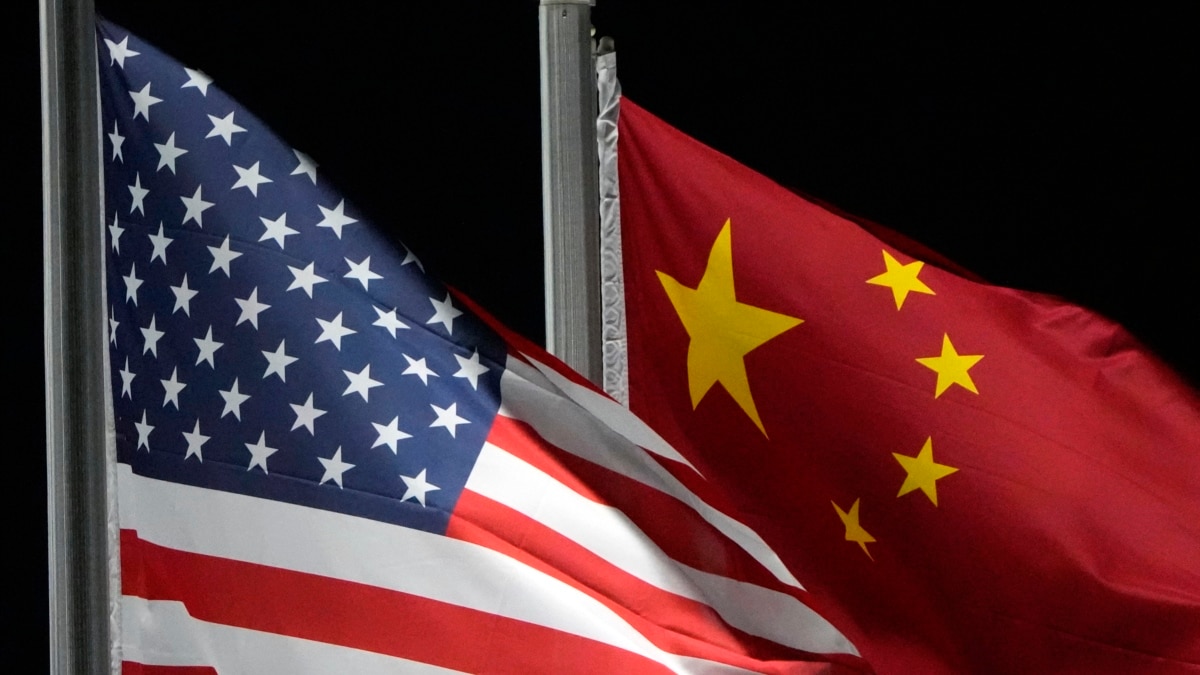US, China sign 5-year amended agreement on science and technology cooperation

The United States and China Friday signed a protocol to amend the bilateral, government-to-government Science and Technology Agreement and extend it for five years, according to the State Department.
The STA, first signed in 1979 by then-U.S. President Jimmy Carter and Chinese leader Deng Xiaoping, is aimed at facilitating cooperation in areas such as agriculture, energy, space, health, environment, earth sciences, engineering, and educational and scholarly exchanges.
The amended agreement, which U.S. officials said excludes “critical or emerging technologies,” took effect retroactively as of August 27 for a five-year term and was signed in Beijing by representatives from both countries. A senior State Department official told reporters the new agreement narrows the scope of the previous deal and introduces “guardrails” to ensure “reciprocity, transparency and openness.”
Chinese Foreign Affairs Ministry spokesperson Mao Ning told reporters in February that the nature of scientific and technological exchanges and cooperation between the two countries is “mutually beneficial and a win-win.”
U.S.-China science and technology cooperation has faced criticism and raised security concerns over the years, with critics arguing it could bolster Beijing’s military capabilities.
Since its inception, the STA has been renewed approximately every five years. In August 2023, it was granted a six-month extension, which was followed by another in February 2024, to maintain the agreement while the U.S. negotiated an amended deal. The short-term extensions occurred amid scrutiny from several members of Congress, who argued China had previously exploited the agreement to advance military objectives against the U.S.
In June 2023, Republican Representative Elise Stefanik, who is President-elect Donald Trump’s pick for U.N. ambassador, and other lawmakers wrote to Secretary of State Antony Blinken, urging him not to renew the STA when it was set to expire on August 27, 2023. They cited concerns over joint research projects between the U.S. Agriculture Department and Chinese entities, including concerns over such dual-use technologies as those used to analyze drone imagery for irrigation management.
Covers basic research
The amended agreement focuses on basic research in fields such as weather, oceanography and geology. It supports U.S. scientific agencies with research related to tsunami warnings, influenza data, air quality monitoring, agriculture, and pest management, according to the State Department.
Another senior State Department official said the amended STA framework enables agencies such as the National Oceanic and Atmospheric Administration and the departments of Energy and Agriculture to propose cooperation and set up data-sharing agreements and joint research projects with their Chinese counterparts.
The State Department reviews proposed collaborations, which also undergo a broader interagency review process led by the White House. Once vetted, the proposals can be implemented.
If either party fails to adhere to the agreed terms, a dispute resolution mechanism is triggered. Additionally, a termination clause allows cancellation of proposed projects in the case of “bad faith action.”
The amended agreement “sustains intellectual property protections and establishes new guardrails for implementing agencies to protect the safety and security of their researchers,” according to a State Department statement.
Security concerns
However, concerns persist regarding China’s stricter data localization and privacy laws, which raise legal risks for U.S. researchers handling Chinese data. The new STA has yet to clarify the protections available for U.S. researchers who may use or transfer Chinese data outside of China.
Congressional critics, including Republican Senator Marco Rubio, Trump’s pick to be secretary of state, have been outspoken opponents of renewing U.S.-China science and technology cooperation.
Earlier this year, Rubio called for stronger measures to safeguard the security of U.S. scientific research. He also introduced a bill to underscore the risks posed by problematic research collaborations with Chinese-linked entities.
Related
EU denies picking on US tech giants, says US also…
BRUSSELS (Reuters) - Europe's new tech rule aims to keep digital markets
H-1B Visa 2025: How and why US policy shift may…
Recent changes in US H-1B visa policies have sparked significant concern within the Indian IT professional community hoping to work in America. However, the a
Alibaba Group (BABA) Stock: Chinese Tech Giants Gain $439 Billion…
Chinese tech stocks have gained over 40% this year, adding $439 billion in valueChina’s “7 titans” are outperforming the US “Magnificent Seven” tech s
The Global Spread of Protectionist Policies That Squeeze American Tech…
An increasing number of countries in recent years have begun targeting America’s leading technology firms with policies touted as measures to promote fair com













